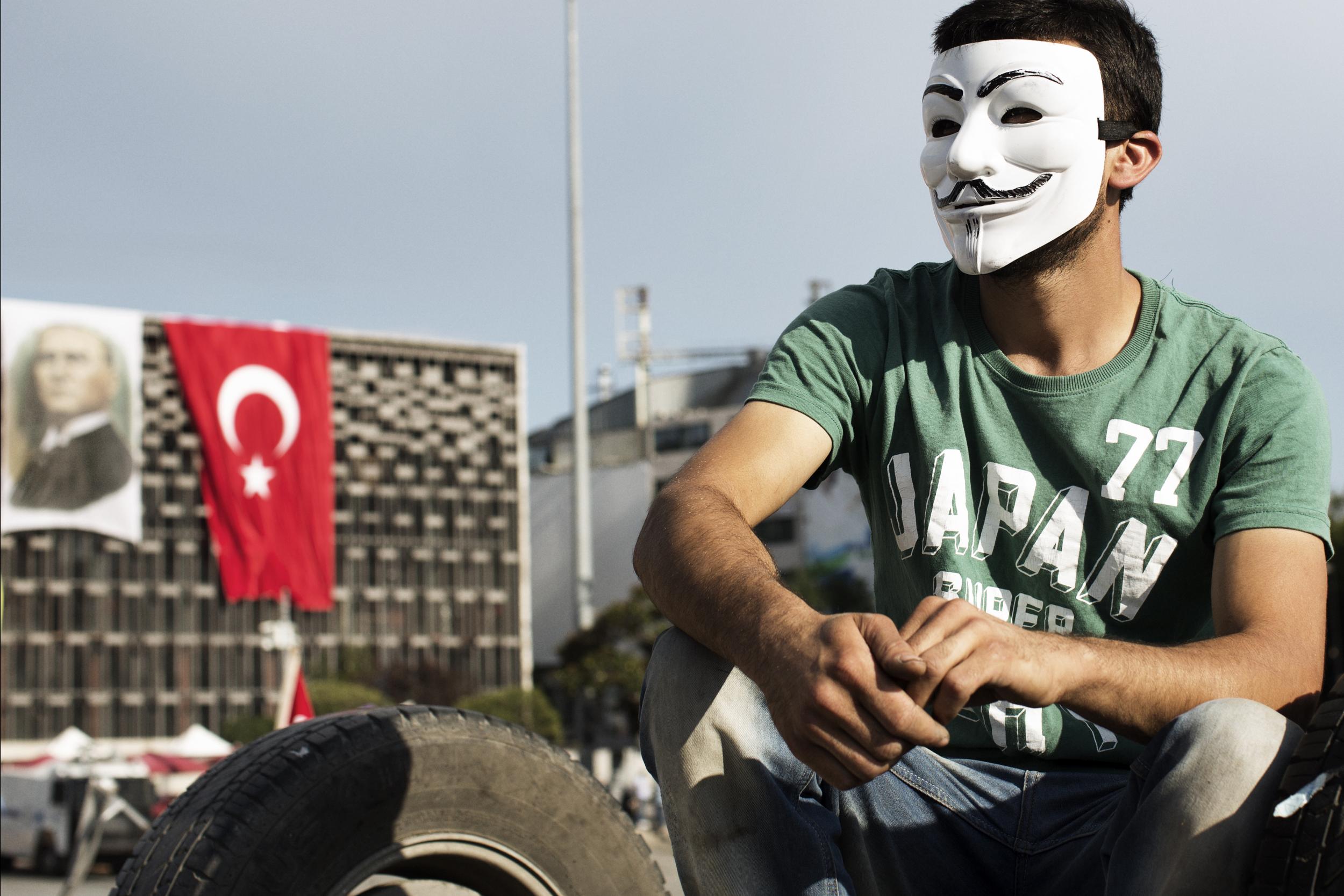Anonymous 'declares war' on Turkey, claims responsibility for recent massive cyberattacks
Anonymous threatened to attack the digital infrastructure of Turkey's banks, airports and government

Your support helps us to tell the story
From reproductive rights to climate change to Big Tech, The Independent is on the ground when the story is developing. Whether it's investigating the financials of Elon Musk's pro-Trump PAC or producing our latest documentary, 'The A Word', which shines a light on the American women fighting for reproductive rights, we know how important it is to parse out the facts from the messaging.
At such a critical moment in US history, we need reporters on the ground. Your donation allows us to keep sending journalists to speak to both sides of the story.
The Independent is trusted by Americans across the entire political spectrum. And unlike many other quality news outlets, we choose not to lock Americans out of our reporting and analysis with paywalls. We believe quality journalism should be available to everyone, paid for by those who can afford it.
Your support makes all the difference.Leaderless 'hacktivist' group Anonymous has taken responsibility for a recent major cyberattack on Turkey, and have claimed they will continue waging war on the country's internet services due to their belief that the Turkish government is helping Isis.
A Distributed Denial of Service (DDoS) attack on Turkey's internet between 14 and 21 December took around 400,000 websites offline, according to Turkish media, after they were overloaded with huge amounts of traffic.
The attack, which was reportedly the biggest in Turkey's history, was only stopped when the Turkish cybersecurity agency stopped all foreign internet traffic from accessing Turkish websites, essentially closing the country's digital borders to the outside world.
In a video apparently produced by Anonymous-linked hackers, a computer-generated voice said: "As many of you have heard, Turkey is supporting Daesh [Isis] by buying oil from them and hospitalising their fighters."
"We won't accept that [President Recep Tayyip] Erdogan, the leader of Turkey, will help Isis any longer. The news media has already stated that Turkey's internet has been the victim of massive DDoS attacks."
"Dear Government of Turkey, if you don't stop supporting Isis, we will continue attacking your internet, your root DNS [the foundation of Turkey's internet], your banks and take your government sites down."
"After the root DNS we will start to hit your airports, military assets and private state connections. We will destroy your critical banking infrastructure."
"Stop this insanity now, Turkey. Your fate is in your hands."
Anonymous is completely leaderless and has no real 'official' web presence - anyone with a computer can make a video or start a Twitter account and begin declaring attacks in Anonymous's name, making it hard to tell how real this threat is and how genuine their claims to the Turkish cyberattacks really are.
At the time of the attacks, there was speculation that the hackers responsible could have been acting on behalf of the Russian government, after Turkish missiles downed a Russian fighter jet over the Syrian border in November.
However, Anonymous has performed a number of high-profile operations in recent months, taking down Isis-linked websites and Twitter accounts and releasing the names and personal information of around 1,000 alleged Ku Klux Klan members.
Past Anonymous DDoS attacks have also disabled websites belonging to a number of governments and major companies around the world.
The latest declaration of war from Anonymous appears to be part of the ongoing #OpIsis, an operation which has been attacking the terrorist group's presence on the internet since the start of the year.
Turkey has long been accused of supporting Isis, with Russian President Vladimir Putin labelling the government "accomplices of terrorists" after the jet was shot down.
Join our commenting forum
Join thought-provoking conversations, follow other Independent readers and see their replies
Comments